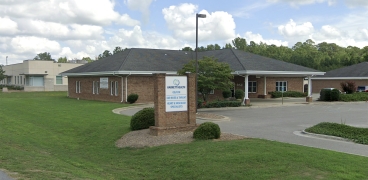Our Approach to Cardiac Ablation
We assess stroke risk and personalize treatment for each AFib patient. Using state-of-the-art technology, our electrophysiologists can pinpoint abnormal areas causing arrhythmia. Our skilled specialists can then perform ablations with care and precision in our on-site cath lab.
From initial consultation to postprocedure, we offer seamless, coordinated care. Postablation, we monitor your heart's rhythm and adjust care as needed.
Benefits of Cardiac Ablation
The benefits of ablation for atrial fibrillation or flutter vary from person to person. Some benefits that you may be able to expect include:
Reduced symptoms: Expect fewer AFib flutters and palpitations after ablation.
Less reliance on medications: You may need fewer heart rhythm drugs.
Improved quality of life: Enjoy more energy and less fatigue.
Lower stroke risk: Ablation can reduce the stroke risk linked to AFib.
Better heart efficiency: Your heart may pump blood more effectively.
What to Expect With Cardiac Ablation
Before the procedure:
- Consultation: You'll discuss the procedure's risks and benefits with your doctor.
- Tests: Expect preprocedure tests such as EKGs or echocardiograms.
- Instructions: You may be asked to stop eating or drinking the night before.
- Medication review: Your current medications will be reviewed, and some may be paused.
During the procedure:
- Anesthesia: You'll receive medication to make you comfortable and drowsy.
- Catheter insertion: A catheter is inserted through a vein in your groin (most common) or neck.
- Mapping: The doctor maps your heart's electrical signals to locate the problem areas.
- Ablation: Targeted areas are then ablated, or destroyed, to prevent AFib.
After the procedure:
- Monitoring: You'll be monitored closely for a few hours postablation.
- Recovery: Most patients go home the same day or the next.
- Follow-up: You'll have follow-up appointments to monitor your heart's rhythm.
- Activity: Expect to return to normal activities within a few days, following your doctor's specific advice.
Brenda’s Story: A Heart Procedure That Brought Relief
After undergoing a cardiac ablation at Cape Fear Valley Heart & Vascular Center, Brenda experienced a dramatic improvement in her quality of life. The procedure helped restore her heart’s natural rhythm, allowing her to return to the things she loves—without fear or discomfort.
Welcome to a healthier heart. Cardiac ablation may correct irregular rhythms such as AFib or atrial flutter, reducing stroke risk.
Cardiac Ablation at Cape Fear Valley Health
Cardiac ablation is a procedure to treat heart rhythm problems such as AFib and atrial flutter. It helps when medicines don't work well enough.
During the procedure, doctors thread a thin tube to your heart. Then, they use heat or cold to fix areas that cause irregular beats. This stops the quick, uneven rhythms of AFib, making your heart beat regularly.
It's less invasive than other types of heart surgery, and patients typically recover quickly. This treatment can lower your risk of stroke and heart failure.
Signs of Atrial Fibrillation and Atrial Flutter
If you have atrial fibrillation or atrial flutter, you might notice your heart is beating in an unusual way. The signs and symptoms can include:
- A heartbeat that feels irregular or like it's racing (palpitations).
- You might feel lightheaded or dizzy.
- There can be a sense of being very tired, more so than usual (fatigue).
- You may find yourself short of breath, especially during activity.
- Some people feel faint or actually faint.
- Chest pain is possible, and if you have it, you should seek medical attention immediately.
Some people with AFib or atrial flutter might not feel any symptoms at all. Even without symptoms, these conditions can still increase the risk of stroke and heart problems. It's important to talk to a doctor if you think you might have these heart rhythm issues.
Am I a Candidate for Cardiac Ablation?
If you have AFib, it's essential to consult with a cardiologist. They’ll evaluate your overall heart health, age, AFib severity, and other health factors. This will let them determine if an ablation is right for you.
In general, patients with atrial fibrillation who are good candidates for ablation typically include:
Significant symptoms
Those who experience significant symptoms like such as heart palpitations, fatigue, or shortness of breath despite medication.
AFib episodes return
Patients whose AFib episodes return even after trying other types of treatments, such as medications or electrical cardioversion.
Ineffective Medications
Individuals who cannot tolerate the side effects of AFib medications or for whom medications are ineffective.
Younger Patients
Generally, younger patients without significant structural heart disease may have better outcomes with ablation.
Persistent AFib
Those with persistent AFib, where the abnormal rhythm continues for more than seven days.
Alternative to Medications
Patients seeking an alternative to long-term blood thinner use due to bleeding risks or lifestyle concerns.



